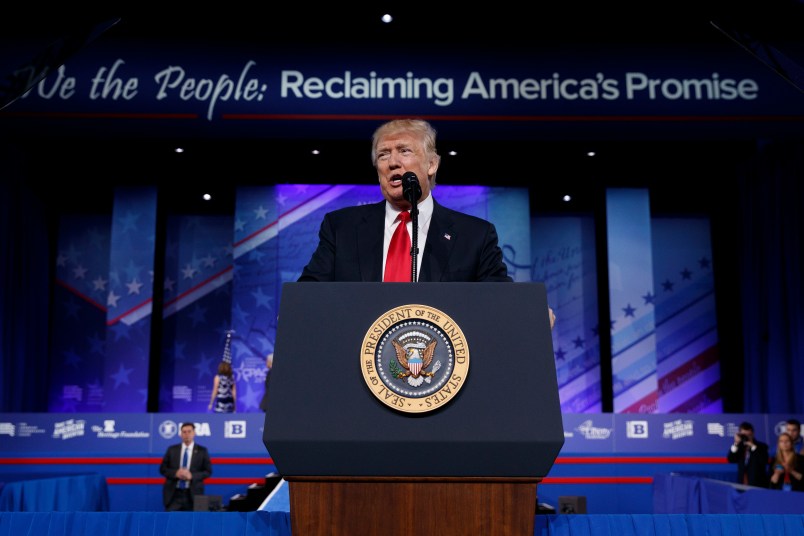In his speech at CPAC earlier Donald Trump had his routine complaints about the press and “fake news”. His latest line is that there should be no anonymous sources. Sources should be named and made to ‘say it to his face.’
Here’s one key quote.
I’m against the people that make up stories and make up sources. They shouldn’t be allowed to use sources unless they use somebody’s name. Let their name be put out there. Let their name be put out. A source says that Donald Trump is a horrible, horrible human being. Let them say it to my face. Let there be no more sources.
There are some good arguments against anonymous sources. They can be overused. They can be abused.
One of the biggest issues is that they can be and should not be used to traffic in insults. If you just want to trash talk, you should put your name behind it, say it to their face, as Trump puts it. Anonymous sources should be used for facts. That requires the reporter, who is the custodian of trust in the anonymous source transaction, to make a series of judgments about whether the source is in a position to know the facts in question and, to the extent possible, whether the proffered facts are accurate. The reporter also needs to make judgments about the sources potential motivations and whether they affect their credibility. (This one is far from black and white: the best sources often have unlovely motives.)
The same anonymous sources sometimes get used again and again with little attention their track record of being right. That’s another mistake.
One final point on anonymous sources. Much of the anti-anonymous sources push comes from the journalism of the Iraq War, where anonymous sources were seen, retrospectively, as being a big part of the problem. I think that is at best an incomplete judgment. The journalism that everybody lauded in retrospect, the reporting that cast doubt on the administration’s claims all made use of anonymous sources and could not have been done any other way. But the big lesson to be learned from the Iraq War debacle is that the rules of anonymous sourcing need to take into account when the sources are not those who need protection from those with power but rather those with power who want protection from their claims being scrutinized.
But for all this, anonymity is critical for almost all real investigative journalism. There’s no reporter who has ever done any serious investigative journalism who would not agree with this. Anonymity, while certainly something that can be abused, is the critical tool in upending the dominance which the powerful have over the public in the control of and access to information.
It’s really as simple as that. Of course, Donald Trump doesn’t like that. But it should remind us why anonymous sourcing is a great safeguard of journalism and free society generally.






